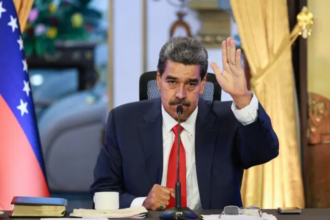Getting relations between Saudi Arabia and Israel back to normal would make Iran’s goals much harder to reach.
A report says that after Hamas’s attack on Israel last week, Saudi Arabia has changed its attention from a deal with Israel to a deal with Iran.
At least 2,800 people have died since Hamas fired thousands of rockets at Israel over the weekend. This caused Israel to declare war on the terrorist group and warn people in Gaza before operations to get rid of the group began in the territory.
The Israel Defence Forces (IDF) told Fox News’ Trey Yingst that their troops and tanks went into the Gaza Strip on Friday to do small raids, but they haven’t started their much-anticipated ground invasion of the area yet.
Two people with knowledge of the situation told Reuters that Saudi Crown Prince Mohammed bin Salman has already spoken to Iranian President Ebrahim Raisi to try to stop any additional fighting that might take place in the area.
One of the sources said that talks couldn’t go on right now and that when they did, Saudi Arabia would have to put the needs of the Palestinian people first.
A top Iranian official told Reuters that Raisi’s call to the crown prince was meant to back “Palestine and stop the spread of war in the region.” The official also said that the call was “good and promising.”
According to a second source in Iran, Supreme Leader Ayatollah Ali Khamenei approved the 45-minute call.
Leaders of both Israel and Saudi Arabia said they were working towards a deal of normalisation, which would have had big effects on the area.
Some experts think the attack happened because of recent reports, including one from a Fox News interview with Saudi Arabia’s Crown Prince Mohammed bin Salman, that the two countries were almost ready to agree on normalising their ties.
Everyone would have won big with this move, but Iran would have lost big because it has long backed Hamas’s terrorism in Gaza.
When Saudi Arabia first heard about the attack in Israel, it seemed to blame Israel for the conflict by bringing up its past “warnings” to Israel about how it was treating the Palestinian people. At the same time, the Foreign Ministry said it was “closely following the developments.”
Officials in the United States didn’t like the remark. On Saturday, Sen. Lindsey Graham, R-SC, told a top Saudi official, “If you want a normal relationship with the United States, this is not a normal statement.”
This is how the U.S. has tried to improve relations between Israel and other major Arab countries in the area through the Abraham Accords, which were first signed by Trump. Bahrain, Morocco, the United Arab Emirates, and Sudan are the only countries that have signed so far.
In August, Saudi Arabia agreed to a first draft of a deal, the Wall Street Journal said at the time. The deal would give the Palestinians some things they want, but it would also include U.S. security promises and help building a civilian nuclear programme in Saudi Arabia.
The Journal says that U.S. sources have said that the Biden administration wants Saudi Arabia to promise that they will keep their economic and military distance from China.















